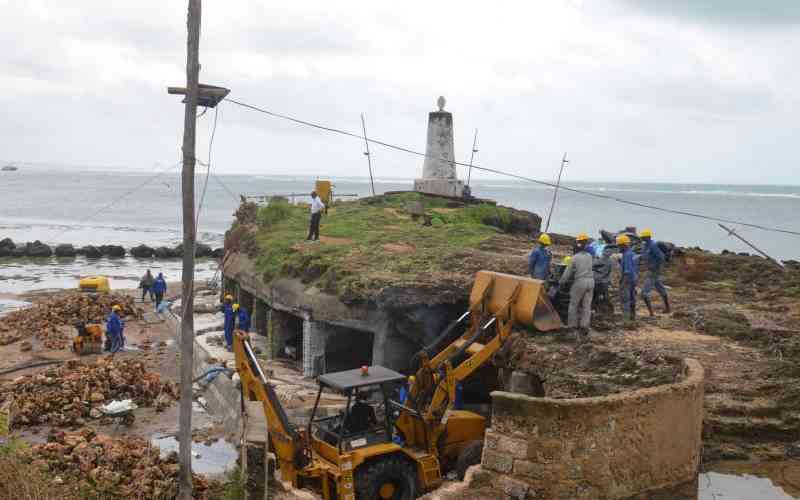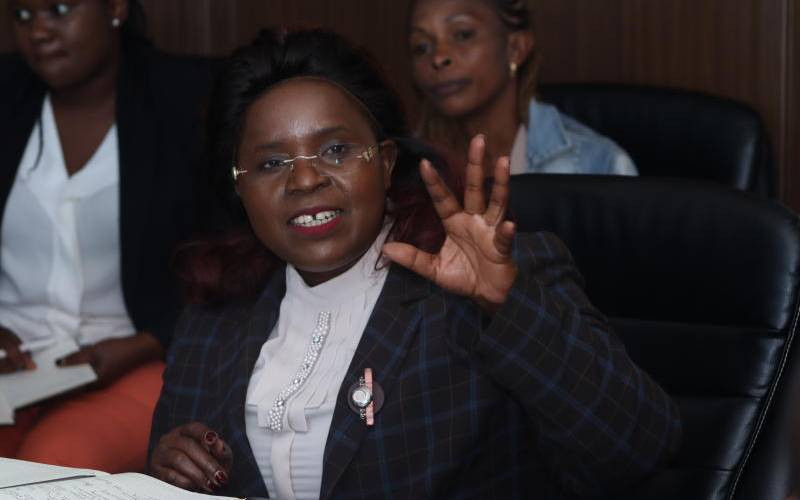Getting to the Nairobi UpperHill Hotel can be an intricate mission, particularly if you are new to the city. But there is a lot about this little boutique hotel that makes the trip worth it.
It is nestled in a previously predominantly residential neighbourhood that has given way to the capital’s foremost business hub. Homes have been knocked down and in their place huge office blocks set up.
Tourism turbulence
This transformation has created business opportunities in hospitality, a by-product Wahome Muotia, 53, has exploited.
He is among the new crop of indigenous hoteliers stepping up to the plate and shaping what could be Kenya’s future after the turbulence faced in traditional leisure tourism.
“If you have business in Nairobi, you still come and do it, despite any travel advisories,” Mr Muotia said as we sat down for this interview at his hotel, valued at Sh500 million.
Bed occupancy is now at 60 per cent just one year since it opened its doors, which is above the industry average. Six in 10 visitors to the hotel are from within Africa and are most are on a business trip to Nairobi.
In the first half of last year, Kenya had 20,000 fewer tourists than over a similar period in 2013. This was attributed to heightened fears of terror attacks in the country, with source markets advising their citizens against travel to Kenya.
But business people chasing deals in Kenya — or the region, for which the country is the gateway — have mostly shrugged off the advisories.
Business is good so far, Muotia said, and the hotel is already ahead of initial projections, thanks to aggressive pricing that offers clients “a 4-star experience at a fraction of the cost”.
Nairobi UpperHill Hotel is one of the dozens of hotels catering to the business traveller.
The discovery of vast natural resources like oil, gas and coal, has seen the country attract prospecting companies, which have sent staff in their hundreds to strike deals and assess investment viability.
Nairobi’s sharp rise as a regional business hub has brought thousands of investors to the city, and with this, a growing demand for ‘decent’ accommodation.
The Upper Hill business district is at the centre of the city’s new status and has attracted global firms, such as Coca-Cola, which has set up its regional headquarters in the area.
For the high-level business traveller, however, international luxury hotel brands like Kempinski and Crowne Plaza have come in to meet their demand. But a not-so-obvious gap still existed for visitors working on a budget.
Stay informed. Subscribe to our newsletter
Superior ranking
It is in this space that several local hoteliers, including Muotia, have found their niche.
Muotia said his initial plan was to build a three-star facility, but Tripadvisor, a global booking and travel agency that allows clients to provide their reviews and user feedback, gave his facility a superior ranking.
David Njiiri, the hotel’s general manager, added that the quiet setting in the Upper Hill neighbourhood has ensured the 75-room hotel is a top pick for people who just want to “hold meetings and transact business”.
“We try to understand every guest has unique needs. If it is kienyeji chicken they want, I will find it,” Mr Njiiri, who has 30 years’ experience in the industry, said.
In the decades he has worked in hospitality, the last three years have been the most delicate, he said. Massive cancellations have typically followed relatively small threats, such as political rallies.
Leisure travel has been most affected, which has prompted hotels to rethink their approach and invest in conferencing facilities.
Nairobi’s plan to put up a mega conference centre at the Bomas of Kenya could be the industry’s Holy Grail.
“It will be critical for the hotel industry,” Njiiri said, adding, “these are very exciting times for us as the sector embraces change”.
The challenges
Nairobi UpperHill Hotel is only the first in a planned chain, Muotia said, with his sights set on other towns, including Nanyuki.
He describes his investment as a dream. In the beginning, he had no idea how it would pan out given he had no background in hospitality.
But Njiiri, who is evidently Muotia’s business partner, conceived a plan and dissuaded the hotel’s chairman from putting up apartments on the property.
Expensive bank loans and the bad roads in Upper Hill have weighed the two businessmen down, however, dampening the projections they had of constructing their second hotel in March.
[email protected]
 The Standard Group Plc is a
multi-media organization with investments in media platforms spanning newspaper
print operations, television, radio broadcasting, digital and online services. The
Standard Group is recognized as a leading multi-media house in Kenya with a key
influence in matters of national and international interest.
The Standard Group Plc is a
multi-media organization with investments in media platforms spanning newspaper
print operations, television, radio broadcasting, digital and online services. The
Standard Group is recognized as a leading multi-media house in Kenya with a key
influence in matters of national and international interest.
 The Standard Group Plc is a
multi-media organization with investments in media platforms spanning newspaper
print operations, television, radio broadcasting, digital and online services. The
Standard Group is recognized as a leading multi-media house in Kenya with a key
influence in matters of national and international interest.
The Standard Group Plc is a
multi-media organization with investments in media platforms spanning newspaper
print operations, television, radio broadcasting, digital and online services. The
Standard Group is recognized as a leading multi-media house in Kenya with a key
influence in matters of national and international interest.








